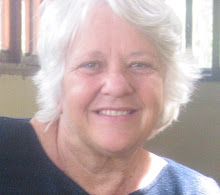Some of the contacts resulting from the New York Times article have proven to be invaluable. Today a couple of documentary videographers came from NY to interview me for a documentary they are making on sustainablity and what individuals are doing to live in more environmentally sustainable ways. They say the film will take at least a year to make but when it's ready they will submit it to film festivals around the country. I hope it will come to Bethlehem, to the SSFF (SouthSide Film Festival) and to the EnergyFest in Kutztown next September.
Last week I accepted an invitation by the CEO of Rodale Institute, just east of Kutztown, PA, and visited the organic farm where the institute conducts its research and development of organic agriculture practices. I found it fascinating to learn that according to Rodale's research organic soil actually sequesters carbon dioxide, due to an underground fungus that uses carbon to build its shell. Chemical pesticides and fertilizers, as well as repeated tilling of the earth, destroy the fungus and the soil's ability to sequester CO2.
Also, I keep finding excellent articles and videos, photographs and essays, about Climate Change. Here's a very simple statement that reminds us to be aware of the impacts of our daily decisions, our carbon footprint day-by-day. I appreciate the comment about plastic bottles, because I've been astounded by people's attitude that they're doing their share by recycling. It's not enough, folks - good but not enough.
From Twilight Earth, guest post by Wendy Gabriel
Living sustainably is not trendy; it’s a thoughtful, responsible way to live. It’s not just about putting your plastic bottles in the recycling bin; it’s about realizing that you should avoid the plastic bottle all together. It’s about really thinking about your impact on your community, your city and your world.
The converse of living sustainably is living in a way that is depleting the very things we need to survive. We need clean water, clean air and healthy food for our continued existence on this planet. Currently, the worldwide population and global demand for these resources are both greater than ever.

No comments:
Post a Comment